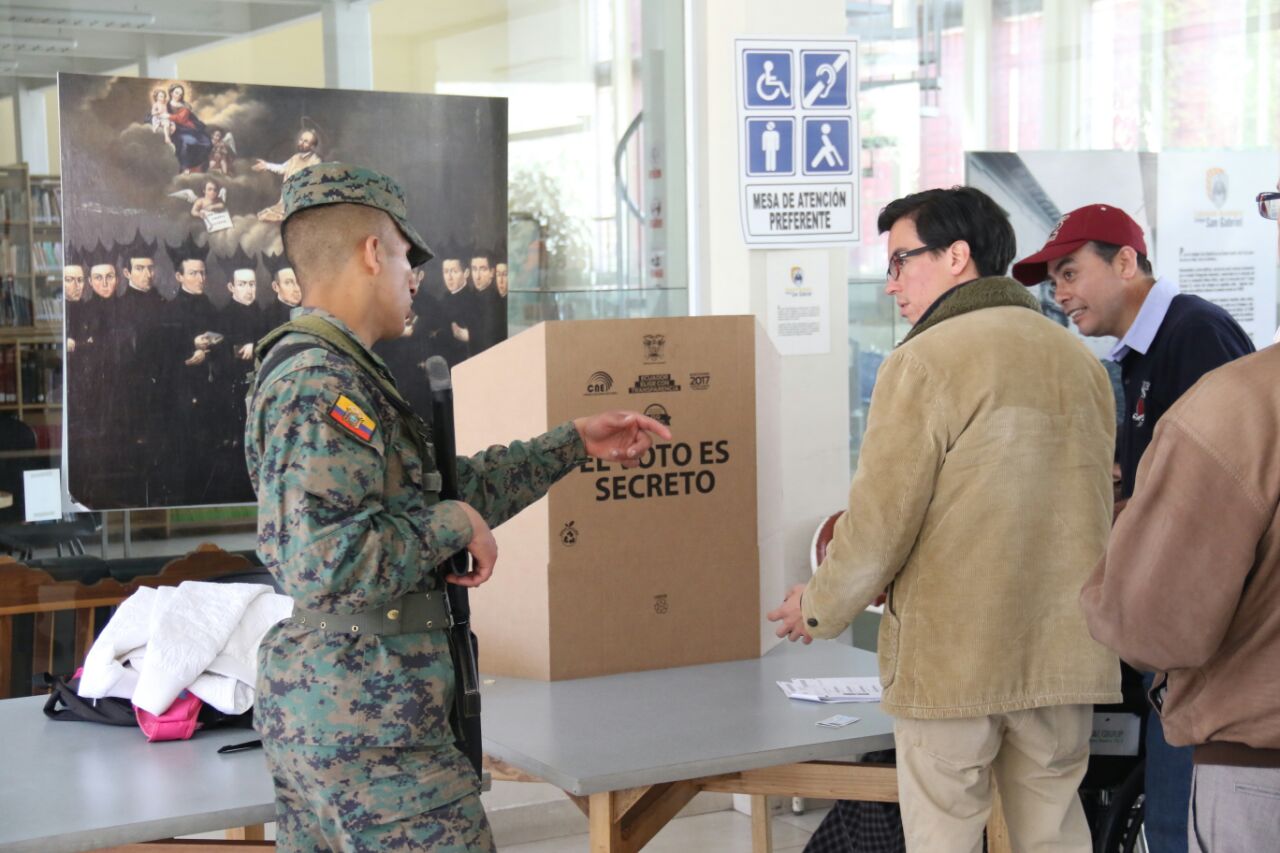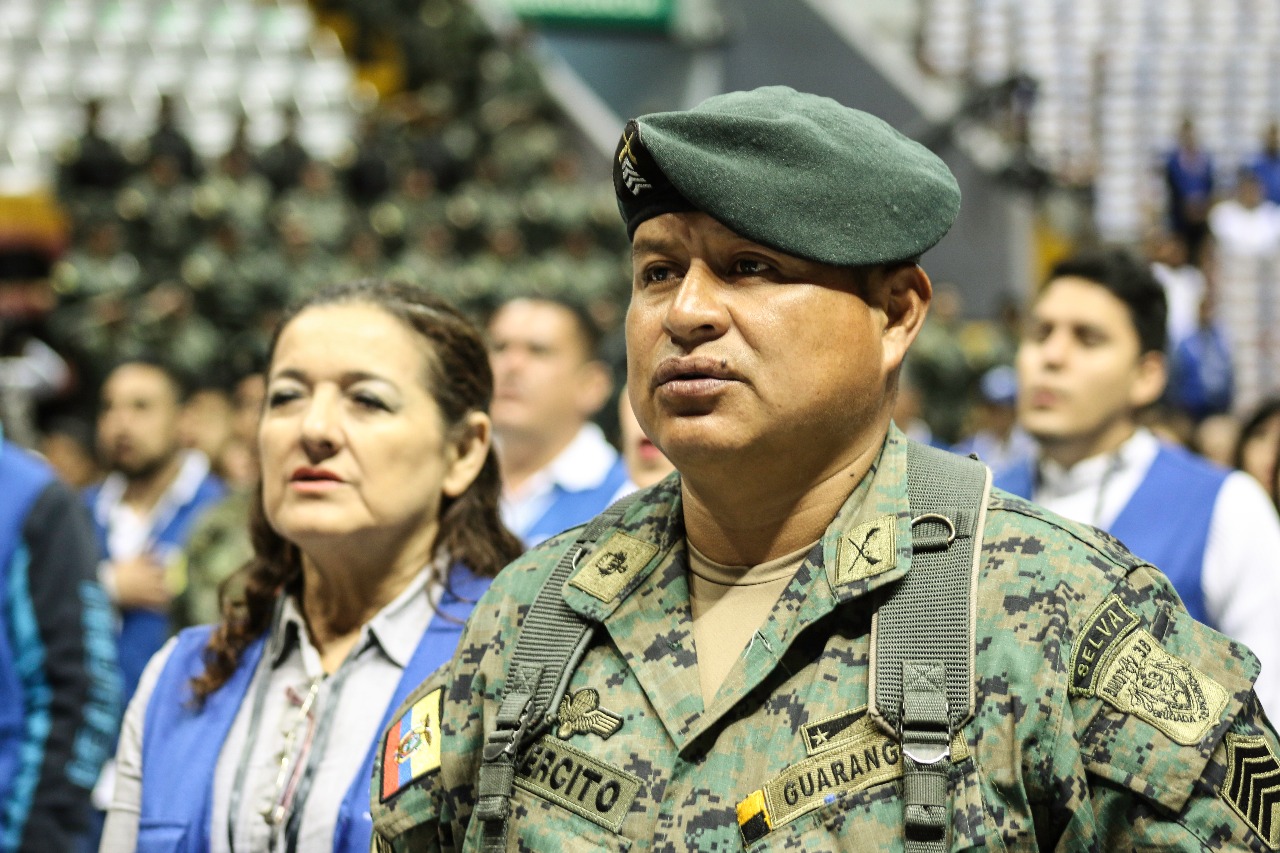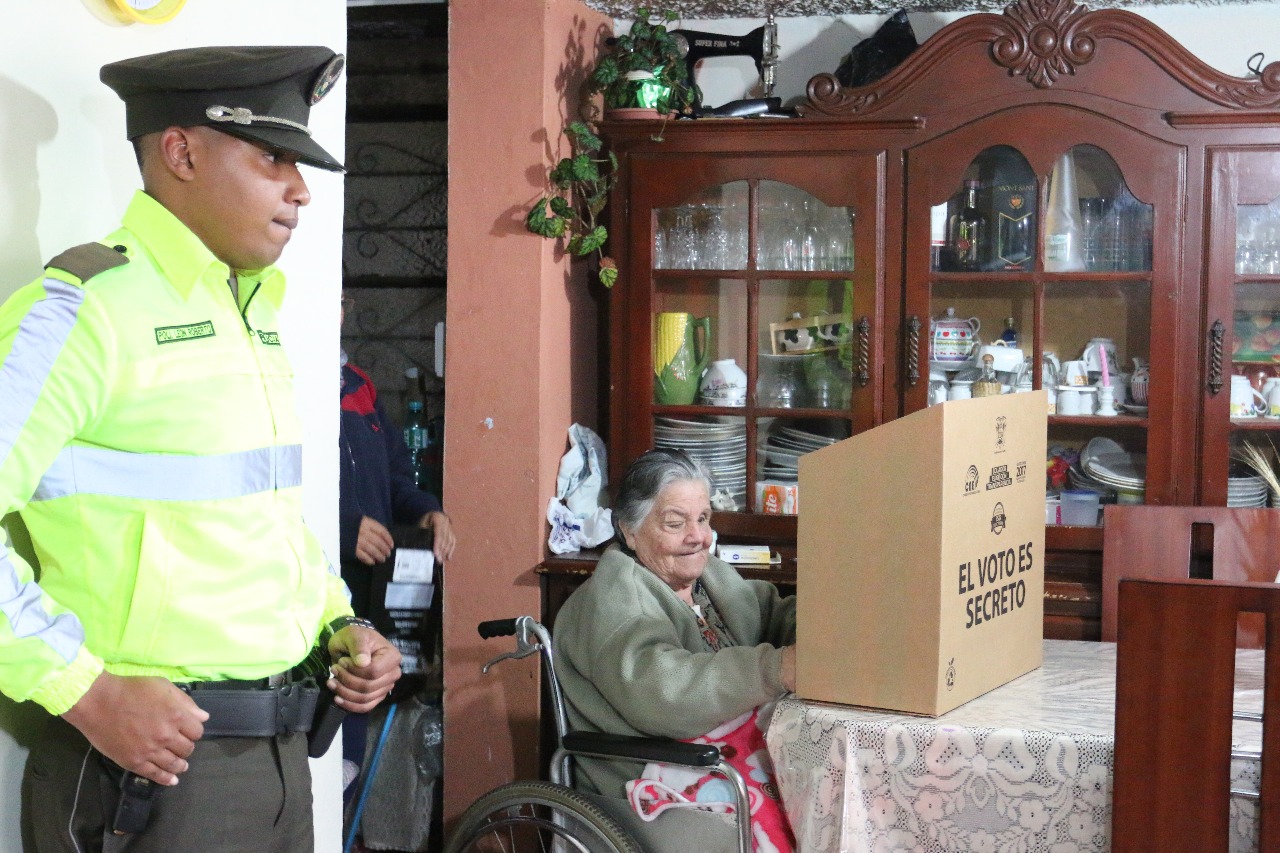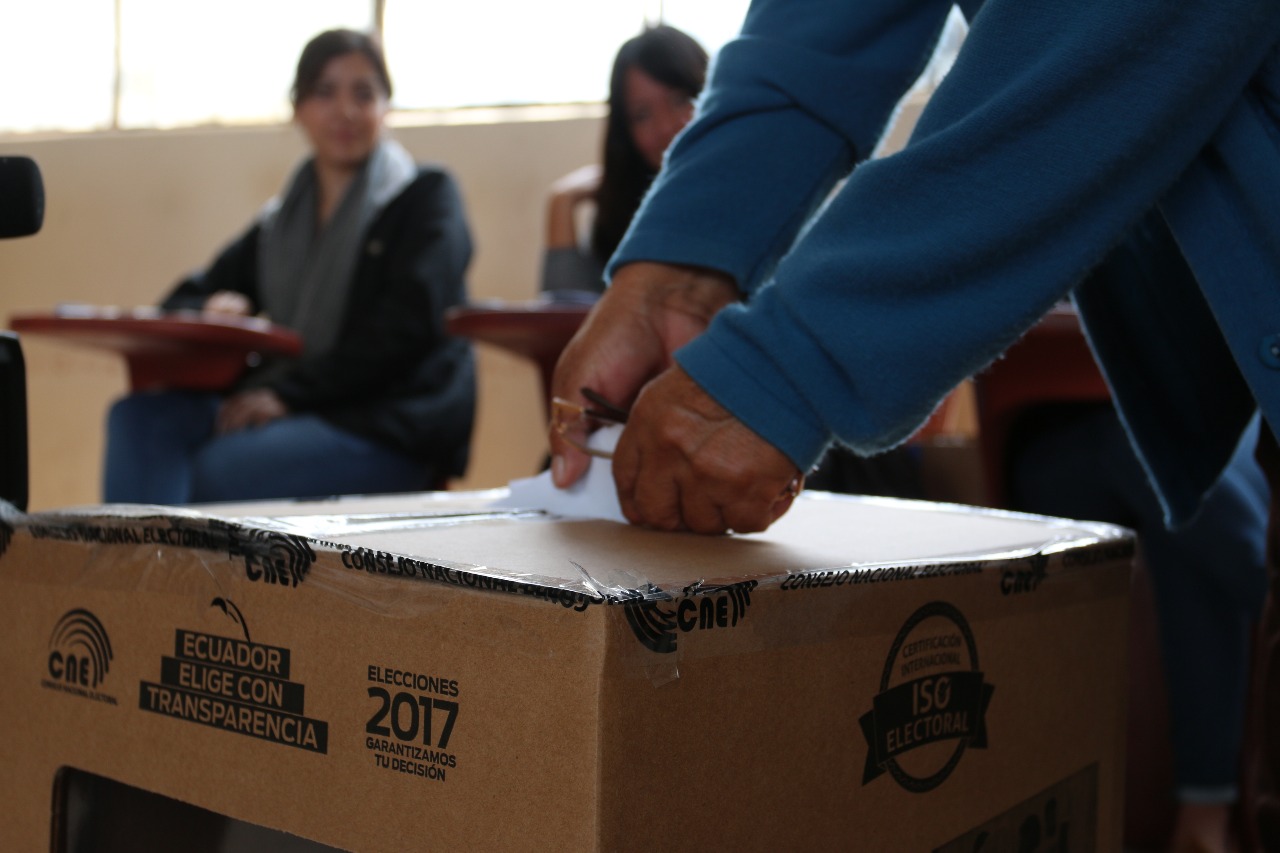
Global Knowledge Network On Voter Education - learning from each other
In Ecuador, democratic aspects and values bind together electoral institutions with the Public Force. This contributes to a society that has the effective guarantees for its right to vote. In this regard, this article aims to analyze the actions of the National Electoral Council (CNE) from the following considerations: first, regarding the institutional actions undertaken together with the Armed Forces and the National Police; and second, about the elements oriented to the integral security in every phase of the electoral processes..

It is important to mention that, according to Article 11 of the Organic Law on Elections and Political Organizations – Code of Democracy (2009), voting shall be mandatory for Ecuadorians over eighteen years of age, including people deprived of their liberty without a final judgement of conviction. Likewise, it establishes that voting shall be optional for persons between sixteen and seventeen years of age, elderly persons over the age of sixty-five years, Ecuadorians living abroad, members of the Armed Forces and National Police in active service, persons with disabilities and illiterate people. Additionally, it determines that voting shall be optional for foreigners over sixteen years of age who have legally resided in the country for at least five years, and are registered in the Electoral Register.
In order to accomplish the exercise of the right to vote, the CNE promoted a process of delivery of credentials to the members of the Armed Forces and the National Police.The purpose of this initiative was that all the personnel of these institutions could exercise their right to voluntary vote from wherever they are on the Election Day, given that, due to their functions, they may be fulfilling activities in different parts of the territory and not precisely in the Polling Station corresponding to their registry and electoral domicile.

Regarding the integrality of electoral processes, the electoral institution had at its disposal the National Security Plan, whose objective was to provide integral physical security to the Electoral Process 2017, and thus guarantee the sovereign will of the citizenry in the exercise of their political-electoral rights. Its purposes were the following: to coordinate the implementation of integral securitybefore, during and after the General Elections 2017with those entities of the public sector involved in the electoral process; to implement security devises in the facilities of the CNE nationwide, as well as in the transportation and custody of the electoral package; and to provide custody and security to the Centers for Processing of Results and the Electoral Precincts.
In the specific case of the installation of the Security Desk, not only it fulfills the principles of our public responsibilities, but also responds to the citizens' demands for security during an electoral process. In its composition, this Security Desk is a temporary body that seeks to coordinate every entity of the public sector participating directly or indirectly in the electoral processes, for the purpose of monitoring and supporting, in a deconcentrated manner, the activities that may be required in each province of the country. Its operations entails the strategic distribution of officials and equipment of each ministry at a national level, in order to, if necessary, activate contingency plans and solve any emergency that may arise throughout the national territory before, during and after the electoral process, and in the most appropriate times.

Specifically, the Security Desk is composed of the Ministry of National Defense, Ministry of Interior, Coordinator Ministry of Security, Integrated System ECU 911, National Secretary of Risk Management, Ministry of Education, Ministry of Health, Ministry of Sports, Ministry of Electricity and Renewable Energy, Ministry of Transport and Public Works, National Transit Agency, and the corresponding institutions in the provinces, according to their competencies. The coordination of actions is one of the principles of public administration; it constitutes a service to the common welfare, just like efficacy, efficiency, quality, hierarchical structure, deconcentration, decentralization, participation, planning, transparency and evaluation, as established in article 227 of the Constitution of the Republic of Ecuador.
In this important context, I would like to refer to the President of the National Electoral Institute of Mexico, Lorenzo Córdova Vianello, during the opening ceremony of the 2015 Inter-American Course on Elections and Democracy, with the subject "Democracy and violence: from old to new challenges in Latin America". Precisely, he alluded to how throughout the time, and depending on the contexts, legislators, authorities and electoral experts have modified their main preoccupations and priorities in the democratic domains. He traversed an interesting path, because, at the beginning, the weaknesses of the still emerging, new and young democracies, and the incipient electoral competition, were related to authoritarian regressions, and even to the processes of legality around the procedures in elections. This affected equally to the guarantees related to the importance of vote equality and the citizenry's political participation. In every case, he tended to think freedoms and securities in an integral manner.

In this regard, it is important to use these spaces not only to refer to the normative competencies we have in our institutions, but also to the responsibility we take as citizens to unconditionally respect the will of the people. As electoral authorities, we are interested in debating and working effectively in the security of electoral processes, and this implies that even if the regional and Ecuadorian democracies have managed to consolidate fundamental rights for the exercise of suffrage, there are still challenges we have to face for the purpose of establishing fair and secure conditions.
From the institution, we understand the integrality of electoral planning by means of such an important space like the Security Desk, in order to guarantee the fundamental rights of the citizens and of every actor of the political-electoral system. On this matter, we highlight the importance of an effective coordination between entities and Branches of Government that, from their own competencies and attributions, contributed to the integral security in every phase of the process: pre-electoral, electoral and post-electoral. This included the security in the transportation and custody of the electoral package and technical kit, as well as the custody and security they provided to the Centers for Processing of Results and the Electoral Precincts.
We considered it was fundamental to have a contingency plan in every stage, considering levels in risk management that allow us to make decisions at a decentralized level in the electoral stage, which allowed us, together with society and other entities, to optimally response, given the case, to natural disasters, considering the expertise of the National Secretary of Risk Management. In this context, we underline the work done in the Ecuadorian provinces affected by the earthquake of April 16, 2016, since they did not have one single delay in the planning of the General Elections 2017.
The actions we have promoted contribute to the decision of the Ecuadorian people, since the basis of the elections was an absolutely technical and transparent process, essential requirement to keep up with the quality of democracy Ecuador demands.
Juan Pablo Pozo Bahamonde
Chairman of the National Electoral Council